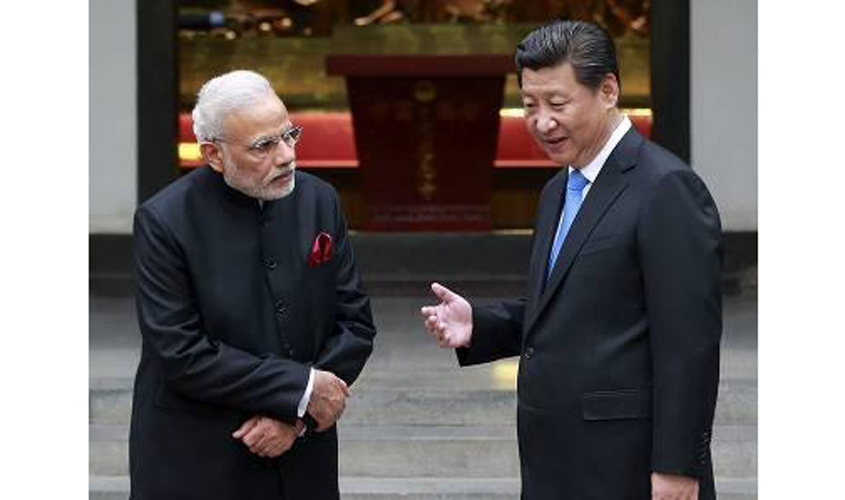India is likely to be disappointed in its efforts to secure a membership of the coveted 48-member elite Nuclear Suppliers Group (NSG), which is going to meet between 19-26 June in the Swiss capital of Bern. India’s membership to the NSG, which has till now been blocked by China, is also likely to be discussed in the meet.
According to sources privy to previous plenary sessions, among those who have questioned India’s entry into the NSG are Brazil, Mexico, South Africa, Italy, Austria, New Zealand, Norway, Ireland, Turkey and China. Sources said that there is a very slim chance of India getting a favourable response (with regard to getting membership) right now, but still in order to quell the intensity of objections from those who are against India’s membership, India’s delegation will be trying to re-assure the countries who have supported India’s membership at earlier plenary sessions despite their reservations about India being a non-NPT (Non-Proliferation Treaty) state and also convince the publicly discerning member countries who have been against India till now.
The reason cited by most of these countries is their objection to a “country-specific waiver” that will pave way for India’s NSG membership. They feel it is unfair for those nations who first had to sign the NPT to get NSG membership. The common concern that is cited by opposing countries is that if India is made an exception to the rule, other non-NPT countries, too, would ask for country-specific waivers. At present, countries like North Korea, Israel and Pakistan are non-NPT states.
In June last year, the plenary session of NSG was held in Seoul, where a closed-door meeting was conducted among NSG members to discuss India’s membership. While some experts maintain that other countries had raised objections only for the sake of discussion, in spirit, they supported India; others say that some nations have a strong opposition to India’s membership. The right way, according to the allegedly opposing states, is to follow a “criterion-based process”. After the Seoul plenary, Mexico had pressed for a criteria-based process for allowing non-NPT members into the NSG, along with Switzerland, Brazil and Turkey. This had surprised many in New Delhi because Prime Minister Narendra Modi had especially visited Mexico and Switzerland a few weeks earlier and discussed NSG, where the state heads had supported India’s membership. Brazil, another country that India saw as a confirmed supporter given that India is part of groupings like IBSA (India, Brazil, South Africa) and BRICS (Brazil, Russia, India, China and South Africa), had raised India’s non- NPT status as an issue. Turkey was the only other country to push for clubbing both India and Pakistan’s applications directly, which has also been suggested by China.
Arka Biswas, Associate Fellow, Strategic Studies Programme, said, “The NSG has had numerous closed-door discussions over the last year, while working on establishing ways to include countries that are not signatories to the NPT. There are at times differences between what these countries state as their official position publicly and what they say in closed-door discussions. That was evident from the proceedings of the Seoul plenary, where some countries, whose leaders had publicly announced their support for an immediate inclusion of India in the NSG, did raise a few concerns at the plenary.”
China’s obstruction, according to sources, was a bigger problem because resistance shown by other countries is largely based on technical reasons, while China is pitching on political reasons. The countries who have raised questions on India’s non-NPT status or objected to India’s NSG membership are largely the same ones who objected to the nuclear waiver granted to India in 2008. But back in 2008, the US had played a key role in securing India-specific waiver from NSG members.
Abhijnan Rej, fellow at the Observer Research Foundation (ORF), said, “A lot has changed since 2008. The Bush administration then, the Obama administration in 2016 and now the Trump administration have different dynamics to consider. The Bush administration had gone all-out to support the waiver for India and literally arm-twisted China into agreeing, along with convincing other discerning countries. However, China under Xi Jin Ping, and the North Korea factor, is a major deterrence for the Trump administration today to get antsy with China over India’s NSG membership, which is not the US’priority.”
Rubbishing all arguments about other countries’ objection to India’s NSG membership, Rajiv Nayan, a nuclear strategy expert at the Institute for Defence Studies and Analyses (IDSA), said, “China is the only wall blocking India’s path to NSG. Other nations had only raised objections for the sake of discussions, but nobody had contradicted the consensus except China. China wants a two-phase criterion in which first we discuss about all the non-NPT states and then choose the members. This is just political gimmick to cause delay. India in all spirit deserves to be part of the NSG and qualifies for country-specific waiver because of our impeccable nuclear record.”
According to Biswas, “India has apparently increased its engagement with these countries. Some diplomats from the ongoing discussions stated that more countries now support India’s inclusion, but whether they vote in favour or not is not clear. Also, with China’s strong and vocal opposition to India’s NSG membership, it might not even come to these countries to express their stand as even a single vote against would result in a stalemate. That is how these voluntary groups function. Even in 2008, while China was not interested in agreeing to grant India the waiver, it conveniently sat behind a number of other countries that had reservations on the same. China was caught off-guard when these countries agreed, allegedly under tremendous US pressure.”

